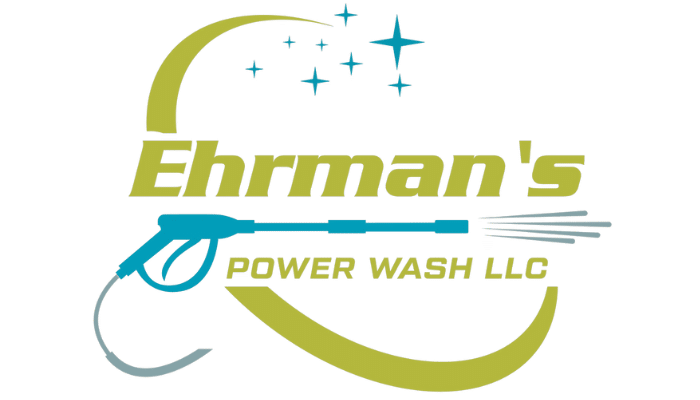In the realm of exterior cleaning, two terms often intermingle, causing confusion among homeowners and businesses alike – power washing and pressure washing. While these terms are commonly used interchangeably, there are subtle yet significant differences between the two methods. We will unravel the mysteries behind power washing and pressure washing, exploring their techniques, applications, and the distinct advantages they offer.
Understanding the Basics:
A. Power Washing:
Power washing involves the use of a high-powered stream of hot water to remove dirt, grime, mold, mildew, and other contaminants from surfaces. The key differentiator here is the use of heated water, which enhances the cleaning power by breaking down stubborn stains and grease more effectively than cold water alone. Power washing is particularly effective for surfaces with grease or oil stains, making it a preferred choice for commercial and industrial cleaning.
B. Pressure Washing:
On the other hand, pressure washing utilizes a high-pressure stream of cold water to clean surfaces. The absence of heat in pressure washing makes it ideal for tackling less stubborn dirt and grime. Pressure washing is commonly used for residential purposes, such as cleaning driveways, sidewalks, decks, and siding. It provides an efficient and quick solution for routine cleaning tasks around the home.
The Equipment:
A. Power Washing Equipment:
- Hot Water Unit: The heart of a power washing system is the hot water unit, which heats the water to a high temperature before it is expelled through the nozzle. The heat enhances the cleaning power, making it highly effective for tough cleaning jobs.
- Specialized Detergents: Power washing often involves the use of specialized detergents and cleaning solutions. These detergents, when combined with hot water, create a potent cleaning solution that can tackle even the most stubborn stains.
B. Pressure Washing Equipment:
- Cold Water Unit: Pressure washing relies on a cold water unit, which expels water at high pressure to dislodge dirt and grime. While it lacks the heating element found in power washing, pressure washing units are powerful enough for many cleaning tasks.
- Variable Nozzles: Pressure washers come equipped with variable nozzles that allow users to adjust the pressure according to the cleaning task. This versatility makes pressure washers suitable for a wide range of surfaces.
III. Choosing the Right Method for the Job:
A. Power Washing Applications:
- Industrial and Commercial Cleaning: Power washing is the method of choice for industries and commercial establishments dealing with heavy grease, oil, and stubborn stains. It is highly effective for cleaning heavy machinery, warehouses, and manufacturing facilities.
- Graffiti Removal: The combination of hot water and specialized detergents in power washing makes it an excellent choice for graffiti removal from various surfaces.
B. Pressure Washing Applications:
- Residential Cleaning: Pressure washing is a homeowner’s ally when it comes to maintaining the exterior of a residence. It is perfect for cleaning driveways, sidewalks, decks, and fences.
- Vehicle Cleaning: Pressure washing is commonly used to clean vehicles, including cars, trucks, and boats. The high-pressure stream easily removes dirt and grime from the surfaces of vehicles.
IV. Advantages and Considerations:
A. Advantages of Power Washing:
- Deep Cleaning: The use of hot water allows power washing to penetrate and clean surfaces deeply, making it effective for tough cleaning tasks.
- Grease and Oil Removal: Power washing excels in removing grease and oil stains, making it indispensable for industrial and commercial settings.
B. Advantages of Pressure Washing:
- Versatility: Pressure washing is versatile and suitable for a wide range of surfaces. It can be adjusted for different pressure levels, making it adaptable to various cleaning needs.
- Cost-Effectiveness: Pressure washing is often more cost-effective for routine residential cleaning tasks, offering an efficient solution without the need for heated water.
C. Considerations:
- Surface Sensitivity: Both power washing and pressure washing can damage certain surfaces. It’s crucial to consider the material and condition of the surface being cleaned to avoid unintended damage.
- Professional Expertise: For complex cleaning tasks or delicate surfaces, seeking professional expertise is advisable. Our professionals pressure washers can determine the appropriate method and equipment for the job, ensuring optimal results without causing harm to the surfaces.
While power washing and pressure washing share commonalities, their differences lie in the use of heated water and the specific applications they are best suited for. Understanding these nuances empowers homeowners and businesses to make informed decisions when it comes to exterior cleaning. Whether faced with stubborn industrial stains or routine residential maintenance, choosing the right method ensures a clean and well-maintained environment. Power washing and pressure washing, each with its unique advantages, stand ready to unveil the hidden brilliance of surfaces, restoring them to their pristine glory.

